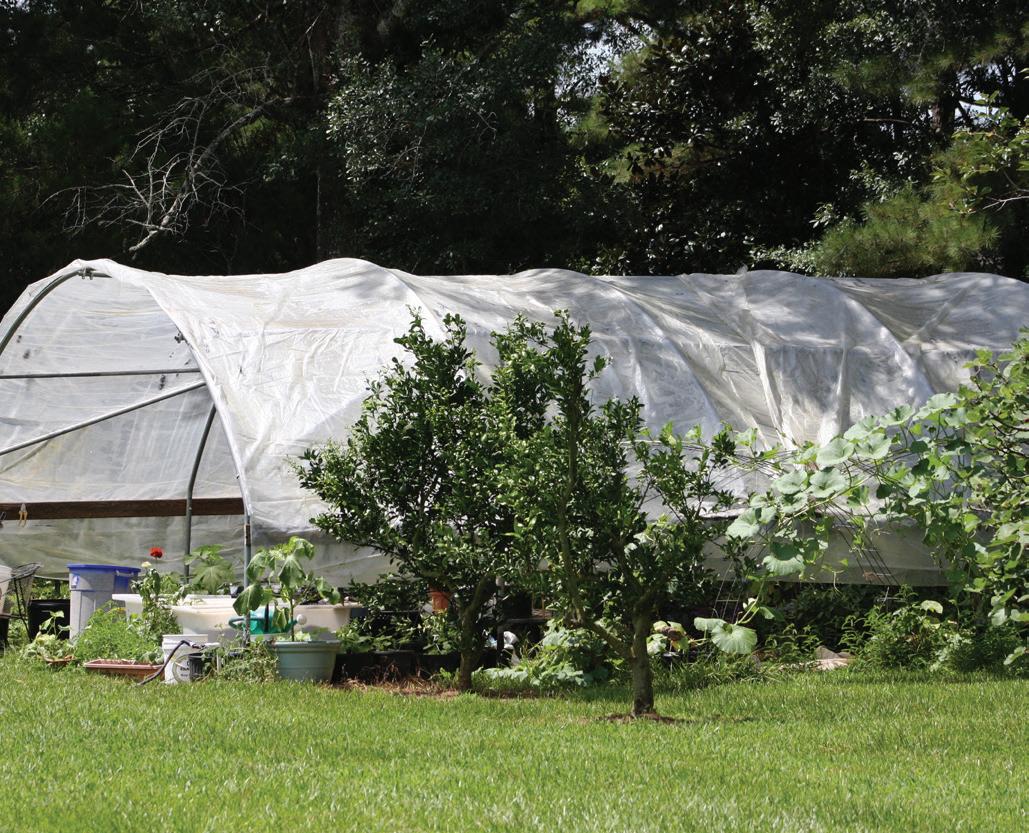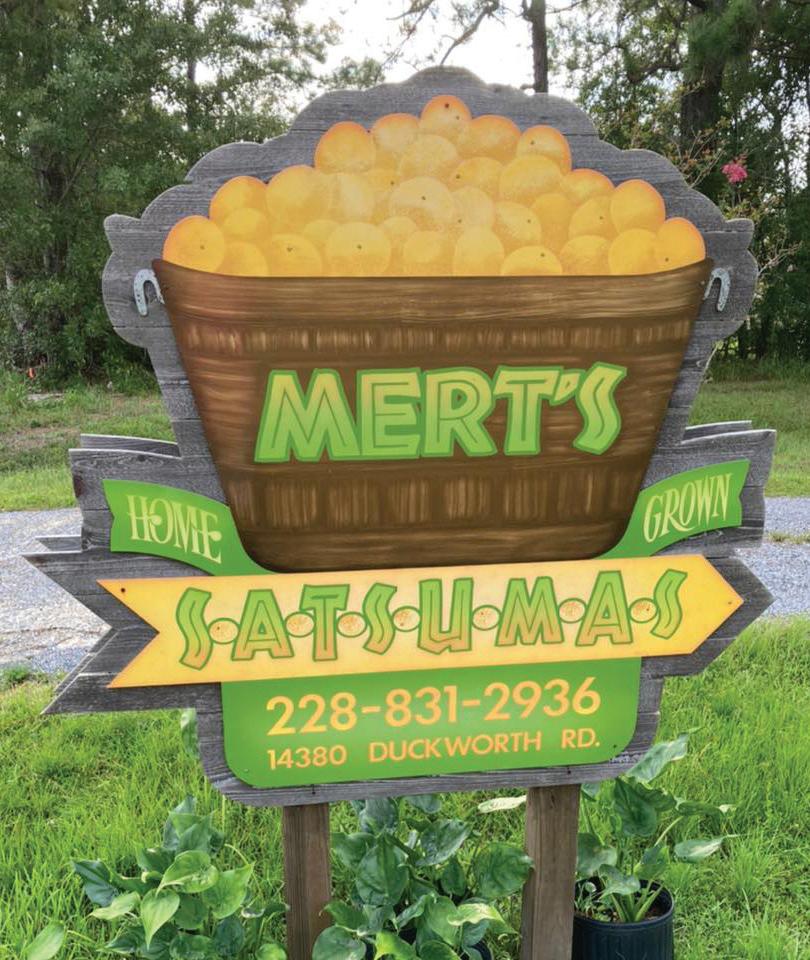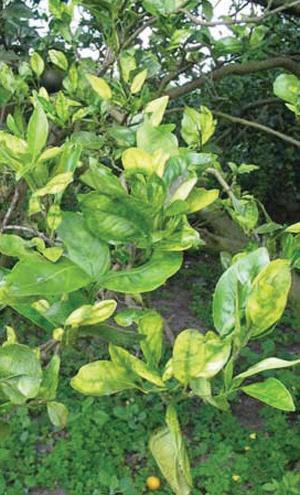Simply the Zest
savoring the citrus of mert's satsumas

 words
words
by
roxann rankiN WickerPhotos Courtesy of Mert's Satsumas Photos
My love of satsumas began when I opened a Christmas box from my grandparents. It was neatly wrapped with satin ribbon and a beautiful gold seal. I could smell the aroma oozing out from under the lid. As I opened the box, I saw these tiny, cute oranges. A bit perplexed, an odd present for a child, but I have always been a grateful receiver of any form of gifting. Once I peeled the first one and tasted the sweetest juice, my love for satsumas never left me.

Glenn Merritt, a Mississippi Power Company retiree postHurricane Katrina, dreamed of building a blueberry farm. However, the soil proved unsuitable for the bushes, posing a significant setback. Not one for defeat, Glenn found a new path when he stumbled upon citrus trees being sold at the local Kmart and co-op. He promptly bought every single one he could find and started planting them on his property. Within five years of planting those Kmart “Blue Light Specials,” he had a fruit-bearing grove.





In 2011, fate had different plans in store for Glenn and Valeri, leading them to create something even more extraordinary. “Mert,” a nickname coined by Valeri from the pronunciation of their last name, planted a main grove on a section of land that was fertile from a horse pasture. With determination and hard work, Glenn and Valeri turned the well-drained land into a citrus paradise, utilizing a reliable well water system and the occasional visit from bees for pollination.

The Merritts' dedication and passion for the land bore fruit—literally. Today, the only Mississippi satsuma farm, their thriving grove boasts over 500 trees, showcasing a delightful variety of Sumo, a citrus hybrid, Pink Grapefruit, Louisiana Early's, St. Anne's, kumquats and even an array of vegetables. But their main citrus producer is the satsuma, a small, easy-peeling, delightfully sweet mandarin orange variety. Each tree can yield around 300-400 pounds of fruit, and while some varieties are overbearing, others exhibit alternate bearing patterns, keeping the couple on their toes with varying crop yields.







It's a testament to the couple's tireless efforts and love for nature. Over time, Glenn's dedication paid off, and the grove flourished, thanks to his hard work and a reliable well water system for efficient drainage. Glenn's quest for different citrus varieties took him as far as California, where he purchased Valencia trees. Faced with skepticism, he planted them in the grove, only to be amazed as Valencia's flourished, affirming that sometimes, taking risks can lead to the sweetest rewards.
Valeri, has also been instrumental in the process, nurturing the fruit-bearing trees and even utilizing the harvested fruits in her culinary ventures. She expertly crafts delectable pepper jelly, fig preserves and satsuma jelly from the fruits of their labor, adding value to their produce and delighting customers.
Opening Season: October – New Year’s Day Sold by 25# box or 5# bag
Mert’s Satsumas –Glenn & Valeri Merritt 14380 Duckworth Road Gulfport, MS 39503




 (Top left) Adisyn Flowers, daughter of Daphne and R.L. Flowers
(Top left) Adisyn Flowers, daughter of Daphne and R.L. Flowers
However, no journey is without challenges, and Glenn encountered his first hiccup earlier this year. He learned there was a potentially fatal disease-infected insect known as the Asian citrus psyllid that may have brought the dreaded “citrus greening” to the grove. The bacterium transmitted by this tiny insect left Glenn concerned for his precious trees.
According to the USDA, citrus greening is one of the deadliest citrus plant diseases, while the disease poses no threat to humans or animals, it has devastated millions of acres of crops throughout the United States and abroad. Information provided by the Florida Department of Agriculture and Consumer Services noted, even though the pathogens are bacteria, the disease does not spread by casual contamination of personnel and tools or by wind and rain. The disease can spread through plant grafting and movement of infected plant material.





Undeterred, Glenn collaborated with the USDA and the Mississippi State University Extension Service to tackle this issue head-on. Although there is no cure for citrus greening, Glenn remains steadfast in his determination to protect the grove. With dedication and empathy, Glenn and Valeri decided to sample trees in the grove for signs of infection.
Thankfully, the USDA tests came back negative on one of their trees, otherwise, they would have had to quarantine the remaining and halt the sale of the affected crop to protect both their customers and the grove production.



“Citrus greening disease is one of the most serious citrus diseases in the world,” said Dr. Eddie Smith, an extension agent with Mississippi State University Extension Service. “Once citrus trees are infected by the bacteria, there is no cure for the disease. Infected citrus trees produce unsellable fruit, decline in health and die within a few years.”
- Dr. Eddie SmithGlenn and Valeri Merritt's story is an inspiring tale of dedication, adaptability and empathy. They have transformed a retired life into a purposeful journey filled with the sweetness of their citrus fruits and the warmth of their hearts. As they continue to work hand in hand with the land and nature, the legacy of Mert's Satsumas is sure to bear fruit for generations to come.
So, as the sun sets on Mert's Satsumas, we can't help but be inspired by this incredible story, reminding us that even in the face of adversity, the sweetest fruits of life can still be savored.
(Top to bottom, courtesy of The University of Florida) Asian Citrus Psylid, diaphorina; Asian Citrus Psylid diaphorina white excretions; GreeningOnce citrus trees are infected by the bacteria, there is no cure for the disease. Infected citrus trees produce unsellable fruit, decline in health and die within a few years.

